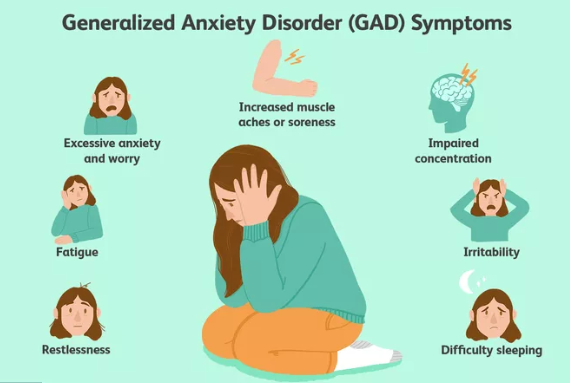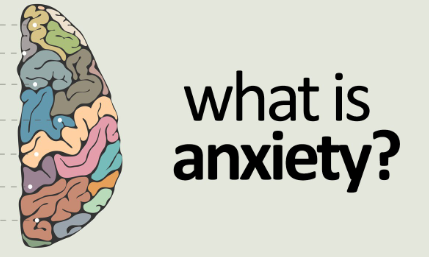Anxiety is a common feeling that everyone experiences at some stage. It can be a normal emotional response to many stressful situations it is largely recognised as a feeling of unease, such as worry or fear, that can be mild or severe.
Everyone faces feelings of anxiety at some points in their lives, this may be due to sitting an exam, concerns about relatives or even medical tests. During these times anxiety is somewhat expected and is a common reaction to such stressors. Anxiety is a natural, understandable emotional response that can help us prepare for challenges, its is important note that everyone feels and reacts to anxiety differently. Some can find it difficult to control their worries and these feelings of anxiety remain as a constant feeling and may affect their daily lives.
How anxiety affects you
Individual symptoms of anxiety are things we all experience from time-to-time.
If you experience more than one of the following, over a couple of weeks or longer, you may need some extra support.

Physical effects of anxiety
- Dry mouth and/or difficulty swallowing
- Nightmares
- Difficulty getting to and staying asleep
- Poor concentration
- Muscle tension and headaches
- Rapid heart rate and breathing
- Sweating or trembling
- A flare-up of another health problem or illness (for example, dermatitis, asthma)
- Sexual problems, such as not having any sexual feelings or no interest in sex
Some common ways anxiety can affect your behaviour and feelings
- Irritability or always being in a bad mood
- Having a strong urge to avoid situations that could trigger your anxiety
- Worry or always feeling that something bad is about to happen
- Asking a lot of needless questions and needing constant reassurance
- Being a perfectionist
- Being pessimistic and focusing on what may go wrong in any given situation
There are several types of anxiety disorder, please see HERE for more information
- panic disorder: experiencing recurring panic attacks at unexpected times. A person with panic disorder may live in fear of the next panic attack.
- phobia: excessive fear of a specific object, situation, or activity
- social anxiety disorder: extreme fear of being judged by others in social situations
- obsessive-compulsive disorder: recurring irrational thoughts that lead you to perform specific, repeated behaviours
- separation anxiety disorder: fear of being away from home or loved ones
- illness anxiety disorder: anxiety about your health (formerly called hypochondria)
- post-traumatic stress disorder (PTSD): anxiety following a traumatic evens
How to reduce feelings of anxiety
1. Identify the things in your life that are causing stress – take note of what they are, once you have this you can make a plan to tackle these feeling
2. Try to keep your body healthy with good food and exercise
3. Try identifying what relaxes you, for some its mediation, for others its reading, learn what helps you to wind down
4. Always remember your inner strength, you have felt like this before and survived. Anxiety, and a panic attack, are not nice experiences, but believe in the strnght of yourself.
5. Talk to people, identify your supports, and know who you can talk to free from judgement – sharing what is bothering you can help you get some context on how you are feeling
6. Touch base with a therapist, look at what you need and work with them to ensure you are empowered enough to beat your anxiety.
7. Remember, this does not change overnight, it takes practice to take control of your thoughts and build up your strength
If you feel you require further support, please reach out to me HERE
“The only normal people are the ones you don’t know very well.” Alfred Adler

